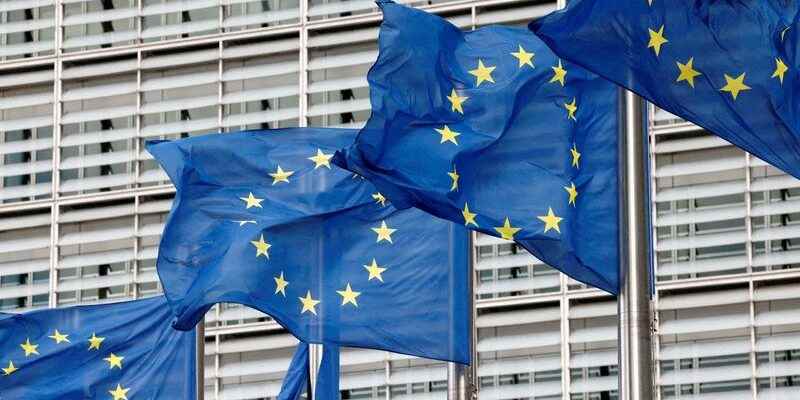BRUSSELS (Reuters) – The 27 countries of the European Union on Saturday formally agreed to cap the price of Russian crude oil transported by sea at $60 a barrel, a measure which is due to come into force on Monday, the European Commission said. .
Poland lifted its last objections to the validation of this mechanism proposed by the G7 on Friday.
The idea is both to dry up Russia’s income to prevent it from financing the war in Ukraine with its oil sales while avoiding a surge in world prices when a European embargo comes into force. on Russian crude, also scheduled for December 5.
“The G7 and all EU member states have taken a decision that will hit Russia’s income even harder and reduce its ability to wage war in Ukraine,” said European Commission President Ursula von der Leyen. , in a press release.
“It will also help us stabilize global energy prices, which will benefit countries around the world that are currently facing high oil prices,” she added.
According to this mechanism, maritime carriers and insurance and re-insurance companies will only be able to take on cargoes of Russian crude if its price does not exceed 60 dollars per barrel, which will de facto complicate any transaction at a higher price, even for third countries.
With the world’s major shipping and insurance companies based in the G7 countries, it will become very difficult for Moscow to sell its oil at a higher price.
The level of the ceiling will be reviewed every two months, starting in mid-January, in order to maintain it at a level at least 5% below the market price.
For the Ukrainian President, Volodymyr Zelenskiy, a cap set at 60 dollars a barrel is not enough and will not prevent Russia from continuing its offensive in Ukraine.
“You can’t think it’s a serious decision, with such a price cap. These prices are still very comfortable for the budget of a terrorist state,” Volodymyr Zelenskiy said in a video.
“Tougher measures are going to have to be put in place anyway. It’s just a matter of time. It’s a shame to waste time like this,” he added.
For his chief of staff, Andriy Yermak, the ceiling should be set at 30 dollars “to destroy the enemy more quickly”.
From Monday, the European Union itself will no longer buy Russian crude by sea, which accounted for 94% of all Russian crude imports made by the 27 EU member states.
The Union will also cease all imports of Russian petroleum products from 5 February. A price cap on petroleum products by the G7 will also be set later, using the same mechanism as for crude oil, the European Commission said.
Urals crude was trading around $67 a barrel on Friday.
Given the rapid implementation of the cap on the price of oil transported by sea, shipments of Russian crude loaded onto tankers before December 5 will be exempt from the restrictions for 45 days, ie until January 19.
If the price cap were to be revised, ships would have 90 days to ensure that they were not carrying oil purchased at a higher price.
The revision of the price cap is an EU-specific mechanism. The unanimity of the 27 member countries will therefore be necessary to record any change in the price. Once a change is accepted by the EU, it will be discussed at G7 level, which also includes the US, Canada, Britain and Japan.
(Report by Jan Strupczewski, Dan Peleschuk and David Ljunggren, French version Tangi Salaün and Caroline Pailliez)
